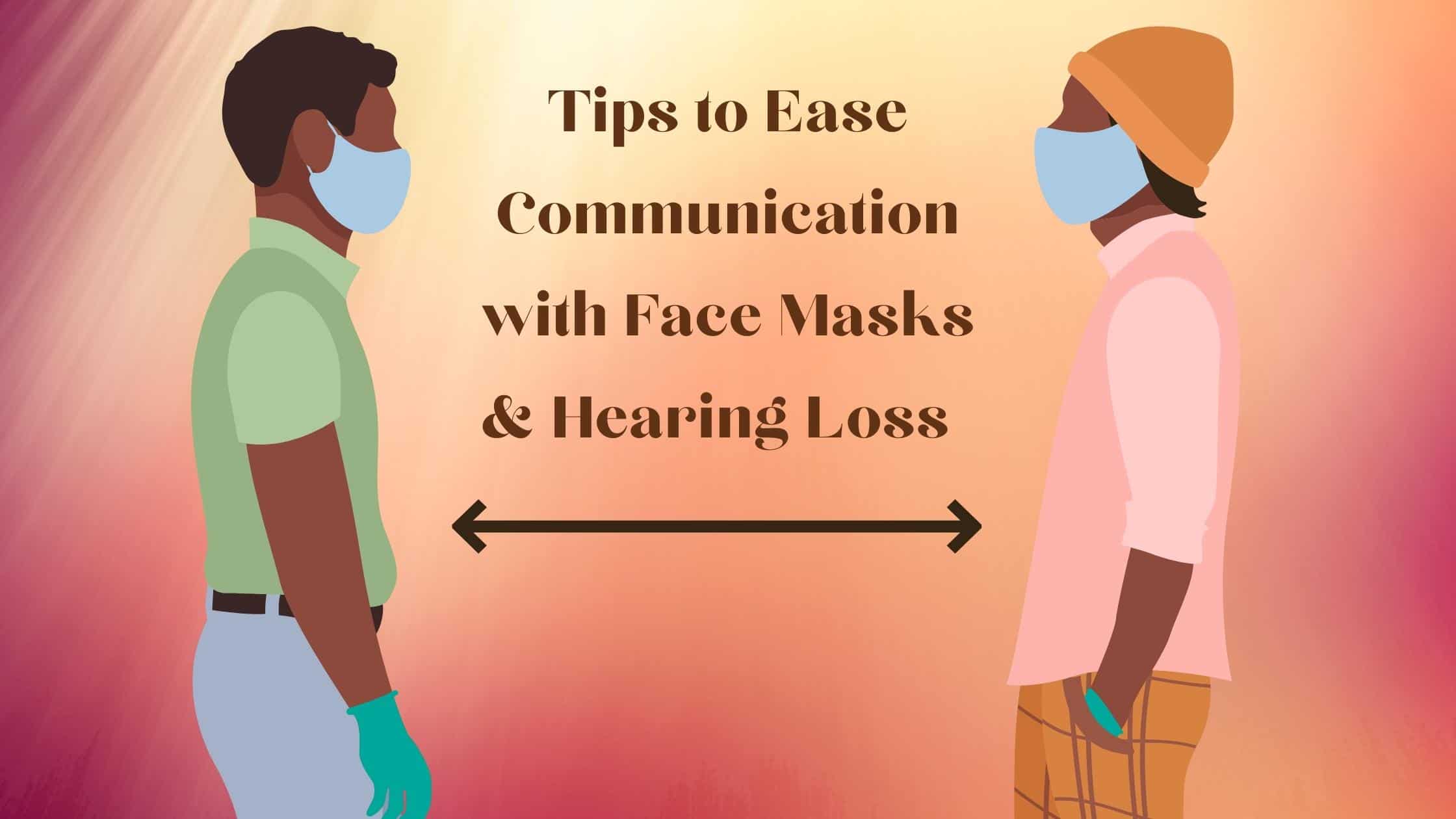
Since the start of the COVID-19 pandemic in 2020, face masks have become a normal part of our lives. While many suspected that the arrival of the vaccine would reduce the need to use masks in public, a continued public health crisis has shown us that masks aren’t going away anytime soon. An added benefit to the prevalence of masks in public in 2020 was a major drop in the spread of the flu. The Centers for Disease Control and Prevention reported that as of 2020, flu activity was “unusually low”. With benefits such as these masks may be here to stay, but there are some downsides to this, particularly for those of us who struggle to hear.
Face Masks and Hearing Loss
Face masks present several challenges for the hard of hearing. Masks make it difficult for even those with normal hearing to hear at times. They muffle the sound as they hug the mouth distorting words. However, for the hard of hearing this is a serious issue. Besides making speech quieter than before, masks obscure faces. Of course, this is their intent to protect the air we collectively breathe, but hearing-impaired people often rely on facial expression and lip reading to supplement what they can’t hear. When masks cover the face, those who have consciously or unconsciously come to rely on these visual cues find themselves struggling to hear. This can leave some members of the community with hearing loss feeling more anxious, confused and isolated than ever before. However, there are some useful tips to ease communication with face masks.
Communication Tips with Face Masks
It can be confusing communicating with a hearing loss, especially when it is recommended that you stand six to eight feet away from a person when you don’t know their covid status. For seniors who are at a high risk for transmission of the virus, even after vaccination, precautions such as mask wearing, and social distance can help protect them. However, with age related hearing loss being the most common type of hearing loss, many seniors could benefit from simple communication strategies to help them hear. If you are a senior with hearing loss, encourage the people in your life to use these communication strategies to make it easier to hear for you and the other person as well.
- Only start to speak when you have the person’s attention. Catch their eye before speaking or say their name. This gives the listener time to prepare to hear what is about to be said.
- Avoid background noise when attempting to communicate if you can. Move to a quieter location if this is an option. If it is not, try writing notes or texting important information instead.
- Raise your voice, but don’t shout. While increasing the volume can help carry sound across the mask and social distance, shouting can distort the sound. Practice breath control to make sure you don’t strain your vocal cords. Take a deep breath at the beginning of each sentence and project out.
- Try speaking a bit slower than normal and pausing between sentences. This gives the listener time to process what is being said.
- Use of nonverbal cues such as nodding, shaking your head, giving a thumbs up, and other hand gestures. Your eyebrows and eyes can be expressive and supplement for the loss of the view of the mouth.
- If you don’t hear something, don’t be shy to ask someone to repeat themselves. Follow up with other questions to make sure everyone understands.
Masks and Hearing Aids
If you are using hearing aids, masks can present a whole new set of challenges. The straps easily get caught around your hearing aids, projecting them to a far corner of the room. Make sure to take your mask off carefully to avoid dislodging them. Many have found better luck with masks which go over the back of the head or connectors which link to each ear strap, converting it into a behind the head mask strap.
Addressing Your Hearing Health
Have you experienced changes in your hearing? Do you find it more difficult to hear than usual? We’re here to help! Contact us today to schedule an appointment for a hearing test.
